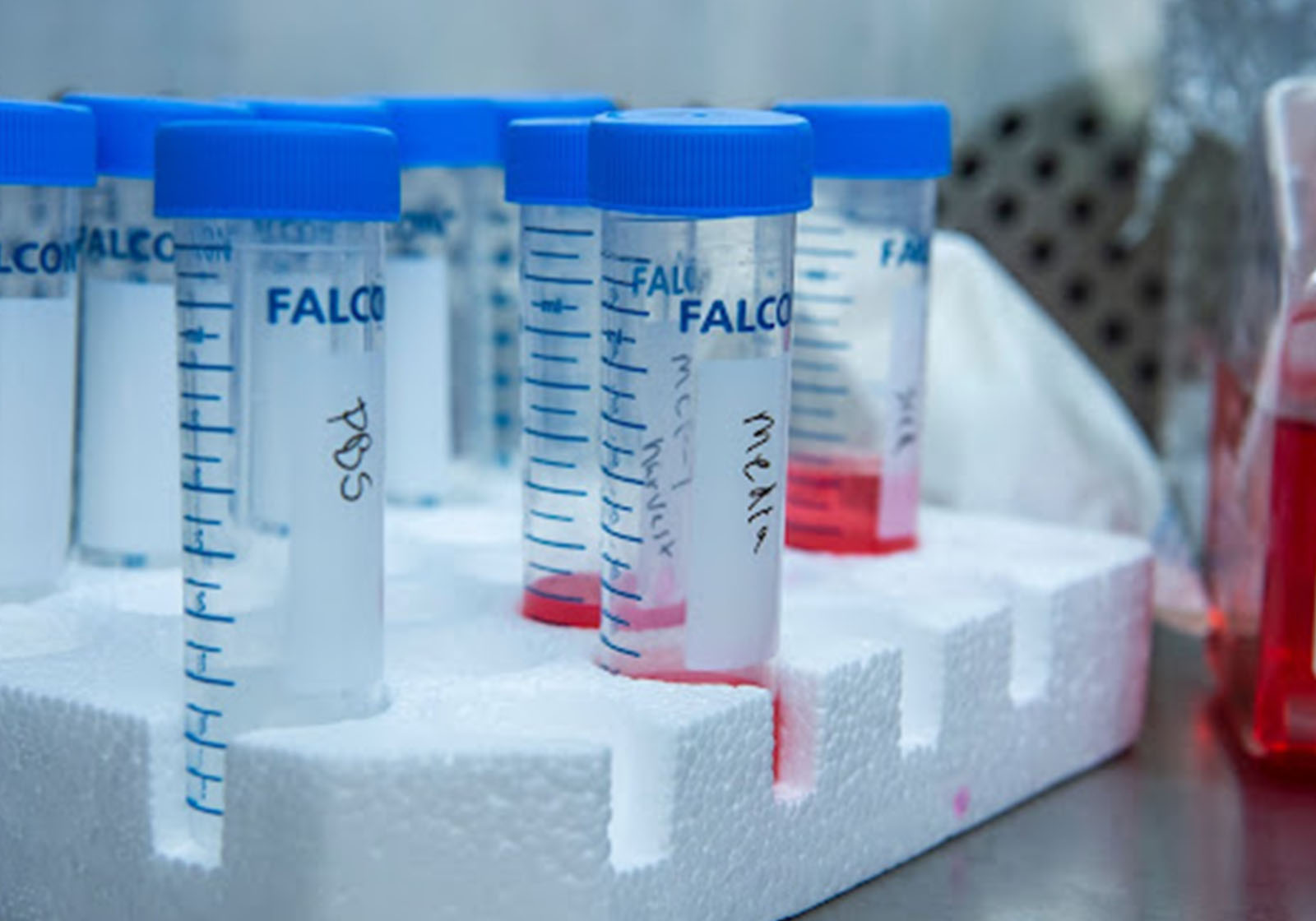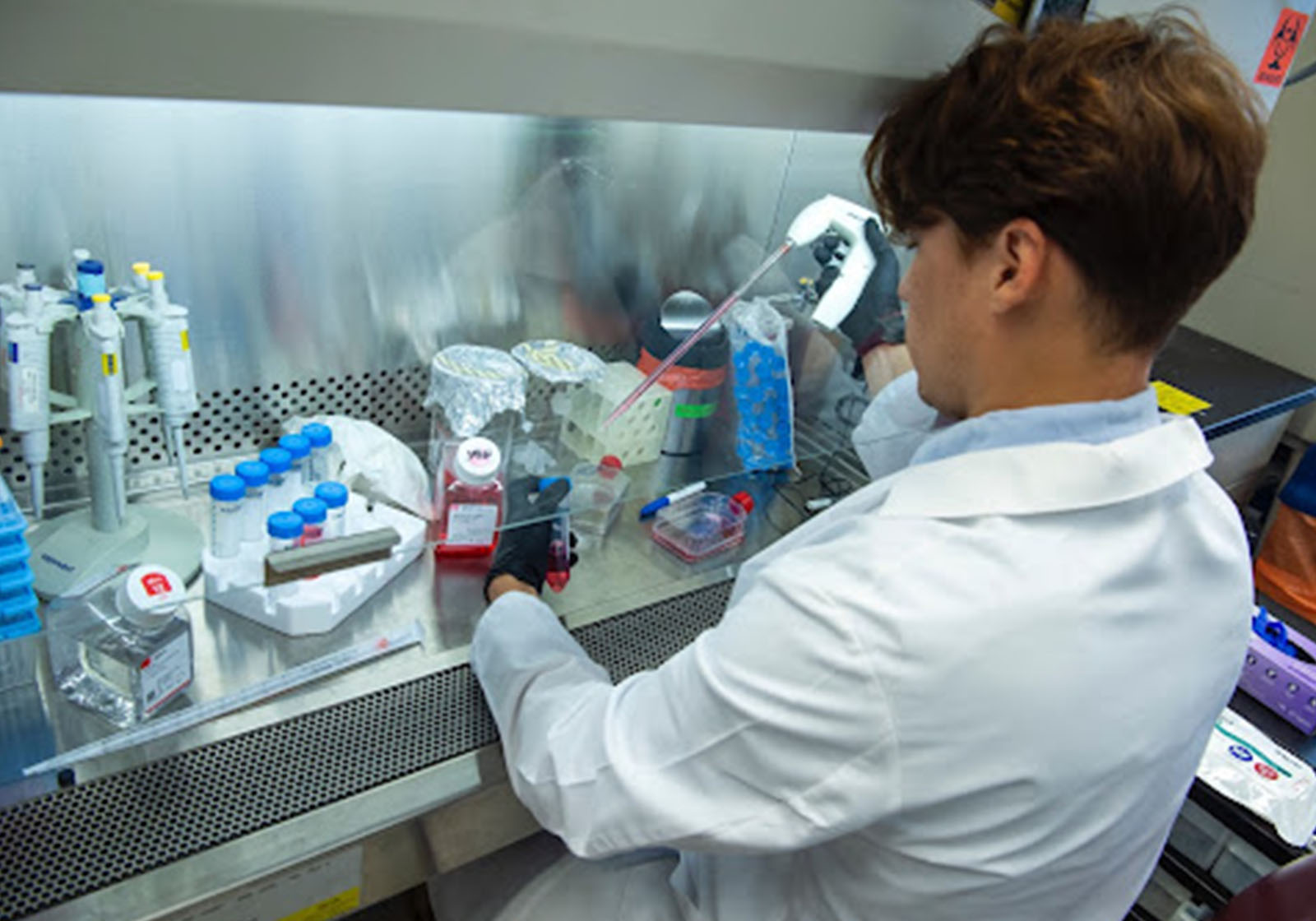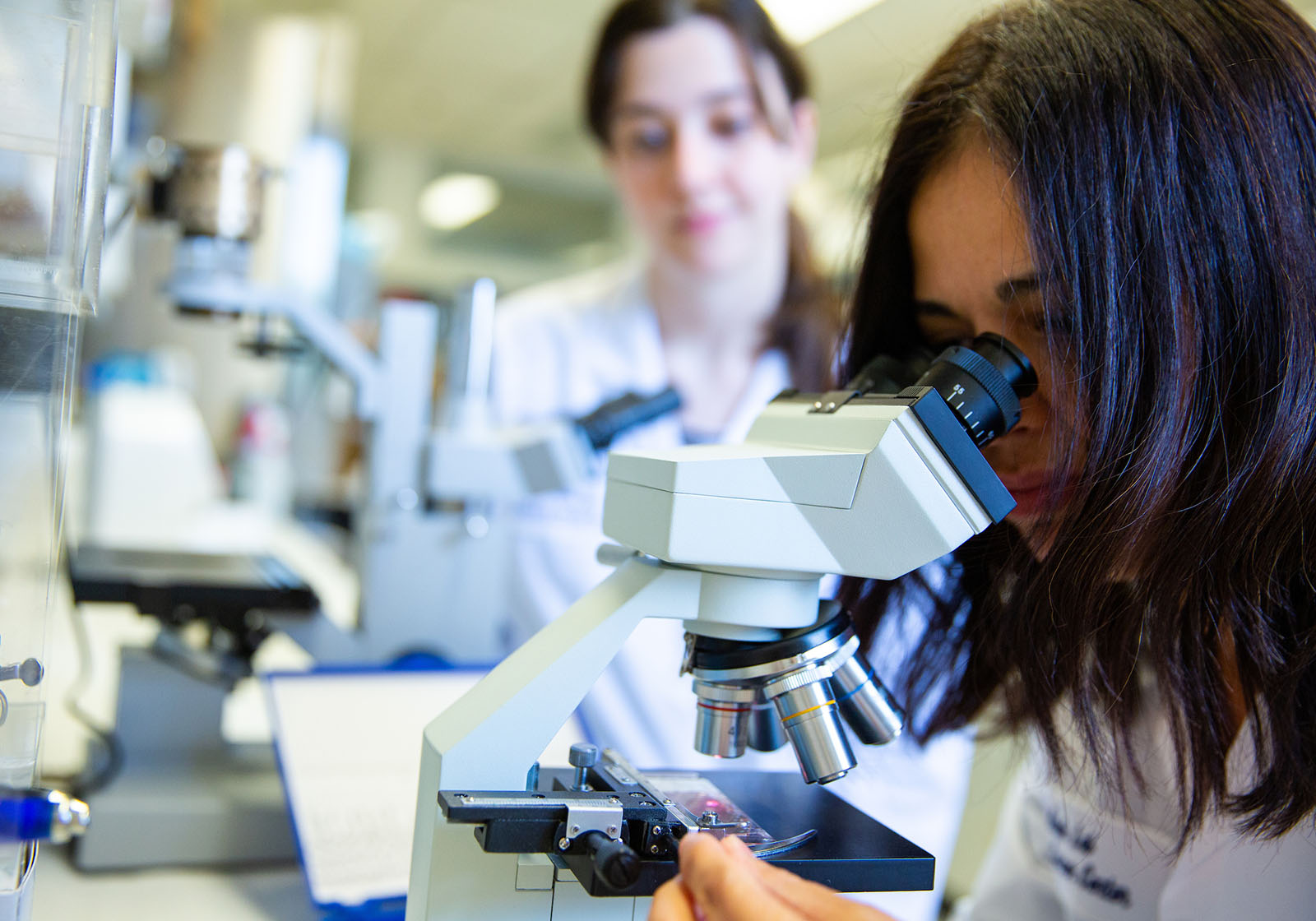Impact
Distinguished as a leader in cancer research and care since 1970, Georgetown University’s Lombardi Comprehensive Cancer Center is Washington, D.C.’s only cancer center federally designated by the National Cancer Institute that seeks to improve the diagnosis, treatment, and prevention of cancer through innovative clinical research, patient care, and community education and outreach.
All time funds raised...
$3,106,697
Where the money goes
100% of funds raised by the BellRinger community support the world-renowned research faculty at Georgetown Lombardi as they discover cancer risk factors, design effective prevention strategies, and develop the cancer treatments of tomorrow.

Dr. Louis M. Weiner
Director of Georgetown Lombardi
“We live in a time of great hope in the area of cancer therapy. Many new, important, and life-changing treatments are now being developed. We are privileged to offer patients tomorrow’s treatments today.”
Research You're Helping to Fund
-
The Ayad Lab
Led by Dr. Nagi Ayad, the Ayad Lab focuses on developing new technologies and medications for the treatment of primary brain cancers such as medulloblastoma and glioblastoma. The overall goal is to identify patient-specific therapies for incurable forms of brain cancer.
-
The Robbins Lab
Led by Dr. David Robbins, the Robbins Lab focuses on colorectal cancer. Their work attempts to explain the signaling pathways that cause colorectal cancer to spread. The ultimate goal of this work is to identify new therapies to treat patients with colorectal cancer.
-
The Nair Lab
Led by Dr. Sreejith Nair, the Nair Lab is dedicated to unraveling the role of cellular RNAs in chemotherapy with the ultimate goal of harnessing this understanding to improve the efficacy and reduce the toxicity of cancer treatments.
Lombardi’s Five Pillars of Impact
-

Pillar of Impact
Immunotherapy
Georgetown Lombardi is at the forefront of pioneering research known as immunotherapy. Immunotherapy uses your body’s immune system to find and destroy cancerous cells. There are several different immunotherapy types, but all immunotherapy works by training your immune system so it can do more to fight cancer.
-

Pillar of Impact
Minority Health and Health Disparities
Georgetown Lombardi’s Office of Minority Health and Health Disparities Research continues to make great strides in the fight against cancer, implementing effective interventions in the capital that support disproportionately impacted populations through navigational services, screenings, educational programs, and other preventative measures.
-

Pillar of Impact
Precision Medicine
Georgetown Lombardi is a leader in an emerging approach for cancer research, treatment, and prevention called precision medicine. Precision medicine considers individual variability in genes, environment, and lifestyle for each person allowing our team to treat the right cancer with the right medication at the right time.
-

Pillar of Impact
Survivorship
Survivorship research includes studying cancer treatment side effects and surveillance for second cancers. Survivorship research also includes studies of health care delivery, or how cancer care and primary care can work together after treatment. It spans cancer types and specialties. At Georgetown Lombardi, our goal is to generate standards of care to serve as models in Washington, D.C. and beyond.
-

Pillar of Impact
Data Science
Georgetown Lombardi is recognizing the critical role of large, complex data sets to the cancer center’s research progress, and has launched the Innovation Center for Biomedical Informatics (ICBI) as an academic hub for innovative research in this field. Leveraging the power of advanced analytics, machine learning, and artificial intelligence, ICBI better connects patients to innovative cancer treatments while ensuring cutting-edge research can be shared seamlessly across research institutions and the private sector.
Meet the Researchers
-

“My research focuses on optimizing the treatment approaches for patients with either advanced melanoma or kidney cancer. We have shown that long-term survival is maximized by giving immunotherapy as the initial systemic therapy and that biomarkers can be used to safely stop immunotherapy, thereby turning survivors into thrivers.”
—
Dr. Michael B. Atkins,
Deputy Director, Georgetown University’s Lombardi Comprehensive Cancer Center
-

“My research focuses on effective cancer prevention and early detection approaches. Our team at the Ralph Lauren Center for Cancer Prevention at Georgetown Lombardi implements these approaches to improve cancer health equity in Washington, D.C.”
—
Chiranjeev Dash,
MBBS, Ph.D., MPH
-

“My lab focuses on developing and testing programs to help improve the quality of life of people diagnosed with cancer. Our work has focused on reducing depression, anxiety, pain, and fatigue, along with identifying ways to support caregivers of those with cancer.”
—
Kristi Graves,
Ph.D.
-

“My lab focuses on developing novel technologies and drugs for the treatment of primary brain cancers such as medulloblastoma and glioblastoma. Our overall goal is to identify patient-specific therapies for incurable forms of brain cancer.”
—
Nagi G. Ayad,
Ph.D.
-

“One of the goals of my lab is to understand the symptoms and side effects experienced by people with advanced cancer. These studies will guide the development of tools and programs to improve quality of life for people living with advanced cancer.”
—
Claire Conley,
Ph.D.
-

“We are highly focused on understanding the reasons behind the dramatic rise in young people diagnosed with GI cancers. Our work understanding the impact of changes to our microbiome will not only unlock the why, but also will lead us to dramatic impact on prevention and treatment.”
—
John Marshall, MD,
Director, Otto J. Ruesch Center for the Cure of Gastrointestinal Cancer
-

“Since 1980, the incidence of liver cancer has more than tripled in the United States. We are working on biomarkers that predict the development of liver cancer and creating strategies to prevent liver cancers.”
—
Ruth He,
MD, Ph.D.
-

“My laboratory is dedicated to unraveling the role of cellular RNAs in chemotherapy, with the ultimate goal of harnessing this understanding to combat therapeutic resistance. We employ cutting-edge technologies to enhance the effectiveness and diminish the toxicity of cancer treatments, paving the way for more efficient and safer therapeutic approaches.”
—
Sreejith Nair,
Ph.D.
-

“My team focuses on developing and testing effective smoking cessation treatments for older adults who are at high risk for developing lung cancer and are undergoing lung cancer screening. Our goal is to accelerate the translation of our findings into clinical practice at MedStar Health and other large health systems.”
—
Kathryn Taylor,
Ph.D.
-

“We are focused on elucidating the signaling pathways that drive colorectal cancer. The ultimate goal of our work is to identify novel therapeutic agents for cancer patients with tumors dependent on such pathways.”
—
David Robbins,
Ph.D.
-

“My lab is identifying new therapeutic targets for lobular breast cancer, with a focus on health disparities.”
—
Rebecca B. Riggins,
Ph.D.
-

“Our lab studies how factors in the outside world such as obesity, distress, depression, and diabetes alter the occurrence and recurrence of breast cancer by affecting the tumor micro-environment. This has led to a recently initiated clinical trial at Lombardi aimed at interrupting this pathway of communication and improving outcomes for women with breast cancer.”
—
Marc E. Lippman,
MD
-

“The breast cancer team is focused on providing outstanding care and carrying out cutting edge clinical trials geared to improve the outcome of people with all stages of breast cancer.”
—
Claudine Isaacs,
MD
-

“My lab focuses on identifying the targets in cancer and normal cells that are impacted by immunotherapy and other treatments of cancer.”
—
Anton Wellstein,
Ph.D.
























